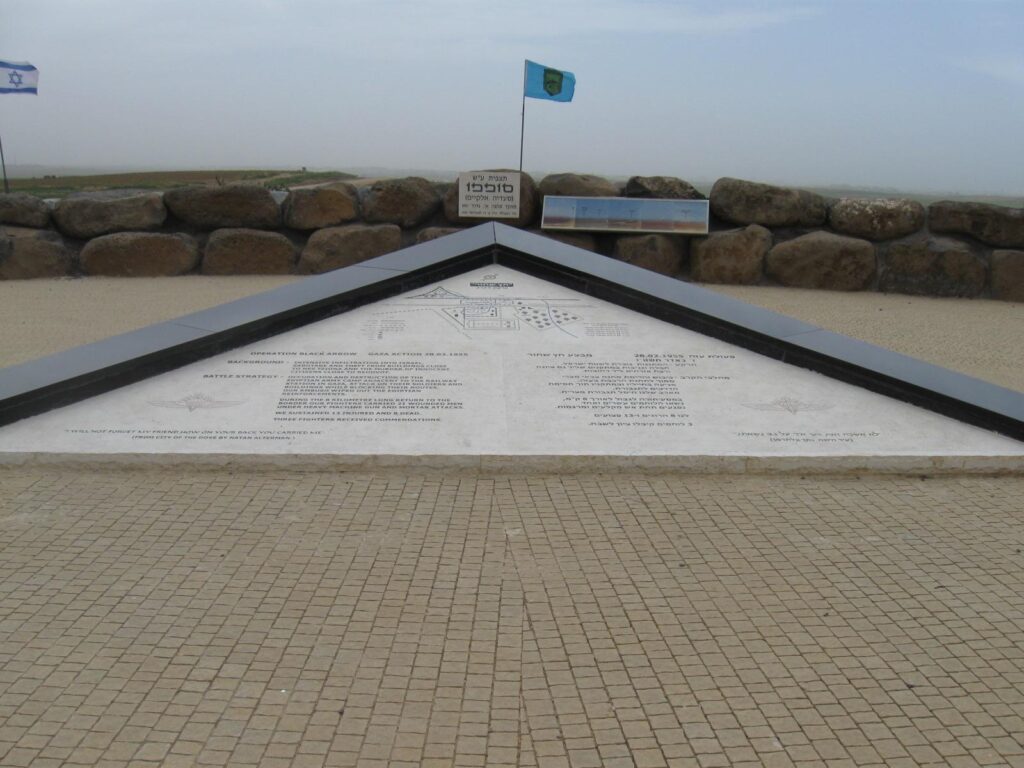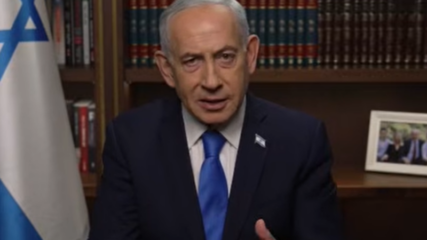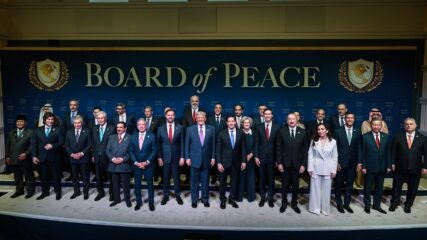February 28, 1955
Two Israeli paratrooper platoons made up of approximately 50 IDF soldiers storm an Egyptian army camp in Gaza as a reprisal for continued fedayeen (Palestinian militants) attacks against Israeli civilians. Eight Israeli paratroopers and 39 Egyptian soldiers are killed in the raid, and 30 other Egyptian soldiers are wounded.
Throughout the early 1950s, infiltrations by fedayeen against Israeli civilians were commonplace. Israel sought ways to provide security for its citizens, especially along armistice lines with Egypt (Gaza), in the center of the country with Jordan, and with Syria in the north. Increasingly the number of infiltrations rose, along with increased cooperation between the fedayeen and the Egyptian army. Shootings across the armistice lines between Israeli and Egyptian troops increased as well.
The Gaza raid, Operation Black Arrow, is designed to curb the fedayeen attacks and to send a message to the Egyptians that supporting such attacks would not be tolerated. The operation targets an army base near the Gaza railway station. From a military standpoint, the operation is a success for Israel, but it has a far-reaching impact on developments in the region.
International reaction to the operation is severe; the United Nations condemns the attack as a violation of the armistice between Israel and Egypt. Western nations criticize Israel for excessive force. The British Foreign Office says it “deplored” the incident.
After the raid, large riots took place in Gaza in support of armed attacks against Israel. Egyptian President Gamal Abdel Nasser sets up commando training camps to better prepare the fedayeen for incursions into Israel. Recognizing that Egyptian arms are not sufficient for further retaliation, Nasser turns to the Soviet bloc for military aid, an alliance he had formed secretly the previous year.
The raid highlights a rift within Israeli politics between the country’s first two prime ministers, David Ben-Gurion and Moshe Sharett. Ben-Gurion, who returned as defense minister just a week before the operation after retiring in December 1953, favors an aggressive policy in dealing with security and containing Arab attacks. Ben-Gurion believes that only a show of strength will coerce Arab leaders into accepting the reality of a Jewish state. His successor, Sharett, who became prime minister in 1954, believes that any censure of Israel in the public arena, especially in the United Nations, is counterproductive. To Sharett and other moderates, such large reprisal raids do little to stop fedayeen activity and often encourage it.
In the aftermath of the raid on Gaza, Ben-Gurion successfully challenges Sharett for Mapai leadership and becomes prime minister again in November 1955.










